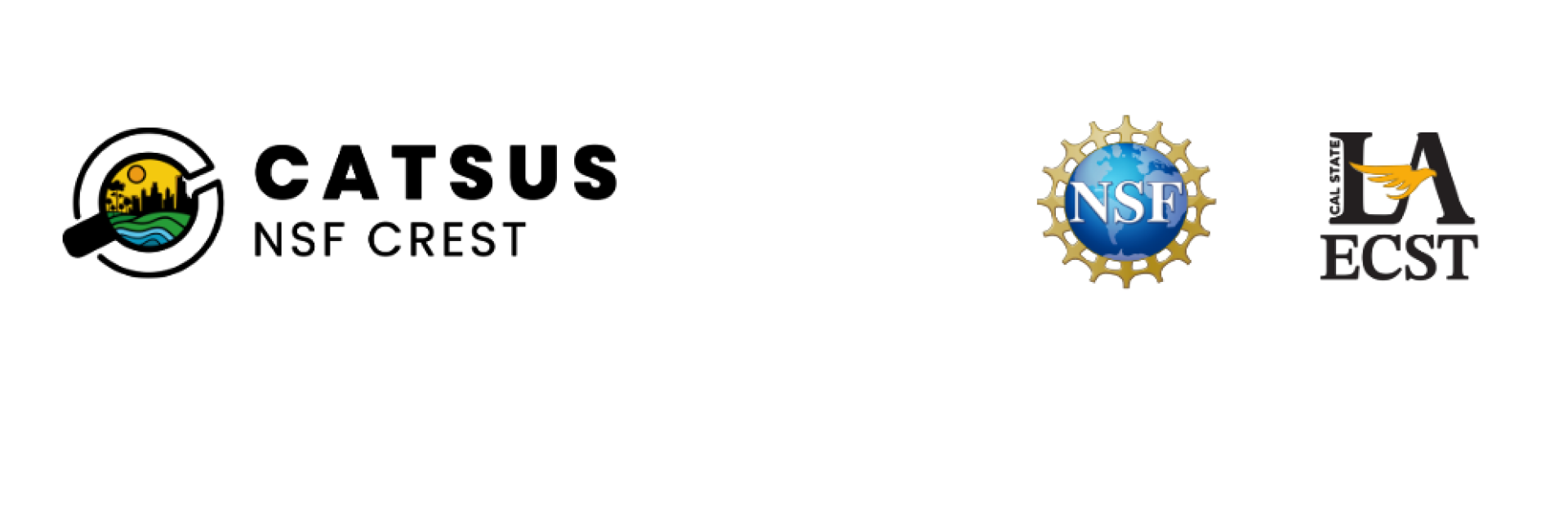CATSUS research faculty and students have access to state-of-the-art facilities, laboratories and research equipment. Recently, the faculty was awarded $1.7 million through NSF ARI2 to renovate several research labs and more than $2 million through NSF MRI grants for the acquisition of new equipment, including a Scanning Electron Microscope, ICP-MS and an high-payload centrifuge. Lab renovations and equipment acquisition will support the institutionalization of the Center.
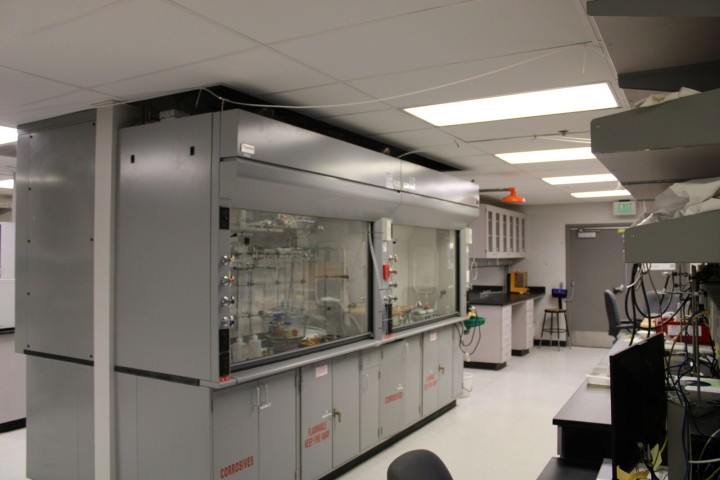
Geoenvironmental and Water Resources Engineering Lab
Geoenvironmental and Water Resources Engineering Lab contains state-of-the-art facilities and instrumentation for investigating hydrogeological and transport processes in porous media, and reactive transport phenomena. In particular, research focuses on the use of steady-state centrifugation to investigate such processes in unsaturated low-conductivity soils in the vadose zone. The lab has one of the few Unsaturated flow apparatus (UFA) available in the World and a newly acquired NSF MRI-funded high-payload centrifuge (200lb/arm and 200g).
Lead Researcher: Prof. Gustavo Menezes
Lab location: E&T C 161
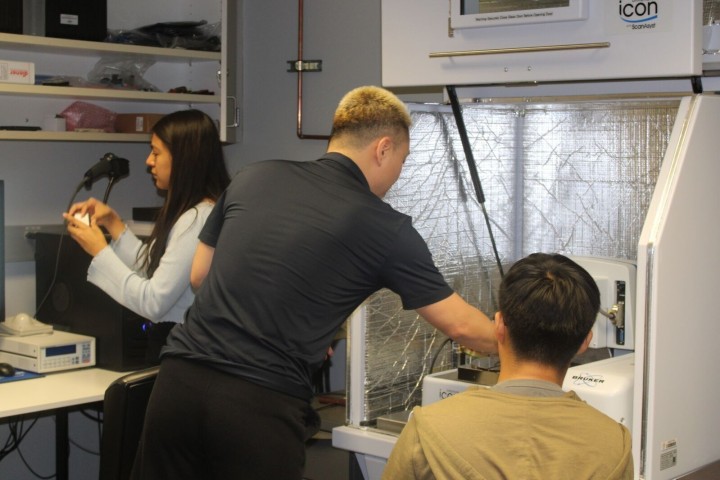
Bio-Nano Materials and Interfaces Lab
The Bio-Nano Materials and Interfaces Lab focuses on three main areas:
(i) bio-/nano-materials and mechanics
(ii) multifunctional and energy materials and devices
(iii) nanotechnology research
The lab uses bio-inspired design to study structure–function relationships, interfacial interactions, and transport phenomena across multiple scales. By drawing inspiration from nature, such as animals, insects, and plants, the team develops next-generation smart materials with properties like switchable adhesion, self-cleaning, anti-fouling, self-healing, and water-harvesting capabilities. These functional materials have broad applications in renewable energy, biomedical, environmental, and defense fields.
Lead Researcher: Prof. Travis Shihao Hu
Lab location: E&T C 153B
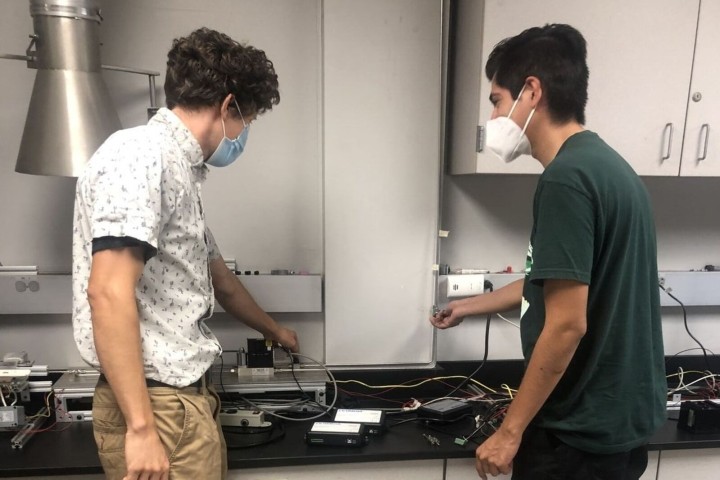
Combustion Laboratory
The Combustion laboratory focuses on combustion chemistry and pollutant formation. There are currently three major projects:
1: Computational design of experimental conditions to provide optimally useful measurements.
2: Modern re-analysis of published measurements to improve understanding of combustion-relevant reaction rates.
3: Design, construction, and testing of a low-NOx cooking burner.
Lead Researcher: Prof. Jeffrey Santner
Lab location: E&T C 156A
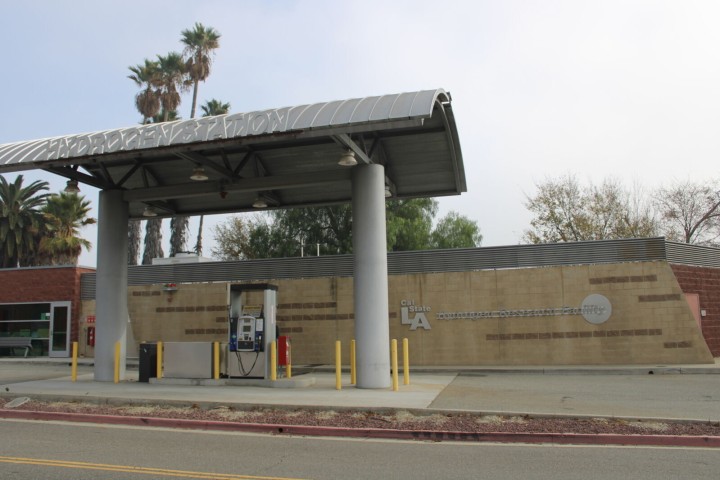
Hydrogen Station
Located next to the Engineering and Technology building, the Hydrogen Station is powered entirely by renewable resources. It features a Hydrogenics electrolyzer, dual-stage compressors for fast-filling up to 5,000 (350 bar) or 10,000 psi (700 bar), 60 kg of hydrogen storage, and integrated water purification, cooling, and control systems. Capable of producing 60 kg of hydrogen per day, enough to fuel 15 to 20 vehicles, it is the largest H₂ fueling facility operated by an academic institution. The station provides hands-on student training, supports sustainable engineering education, and enables research in performance optimization and renewable power smart grids.
Lead Researcher: Prof. David Blekhman
Lab loaction: E&T B13
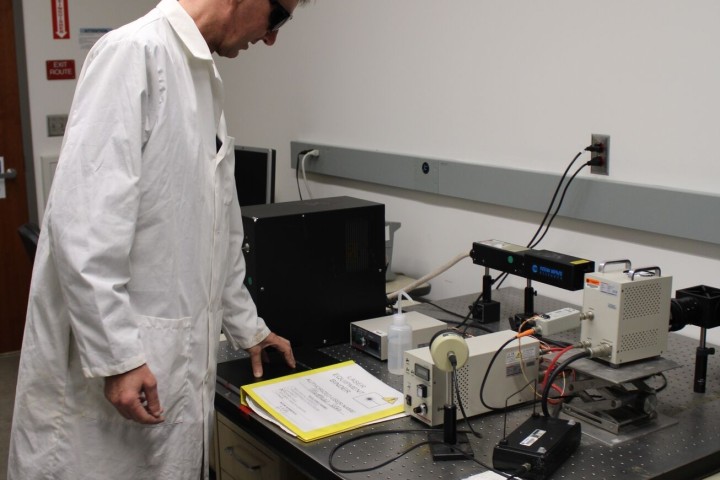
Photochemistry Research Laboratory
The Photochemistry Research Lab focuses on the chemistry of singlet oxygen (¹O₂), the lowest excited state of dioxygen. The team studies its reactions with heteroatoms such as phosphorus and sulfur, emphasizing the mechanistic pathways of these oxidation processes. Using kinetic measurements, trapping experiments, and low-temperature techniques, the lab investigates peroxidic intermediates, which are often more reactive oxidants than dioxygen itself.
Lead Researcher: Prof. Matthias Selke
Lab location: RH 248
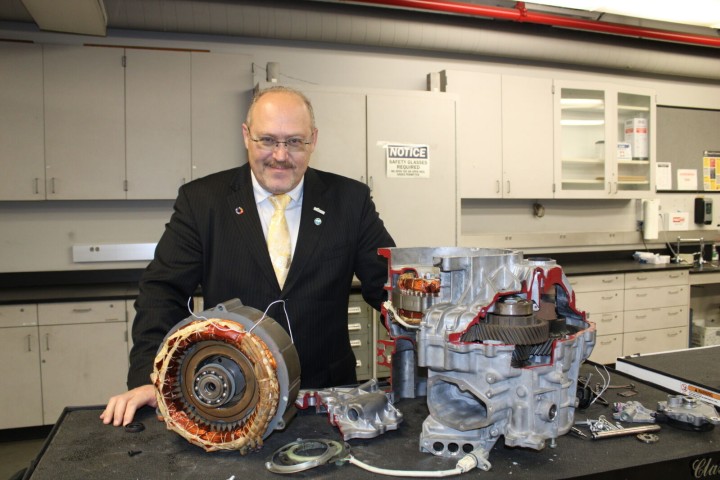
Power, Energy, and Transportation Lab
The Power, Energy, and Transportation Lab focuses on the next technical revolution in transportation and renewable energy. With electric, hybrid, and fuel cell vehicles advancing rapidly, and wind and solar technologies now competitive with coal, the lab prepares students to take leadership roles in emerging technologies. Based in Southern California, a prime market for mobile and renewable innovations, the program is supported by dozens of internationally recognized R&D and manufacturing partners.
Lead Researcher: Prof. David Blekhman
Lab location: E&T B13
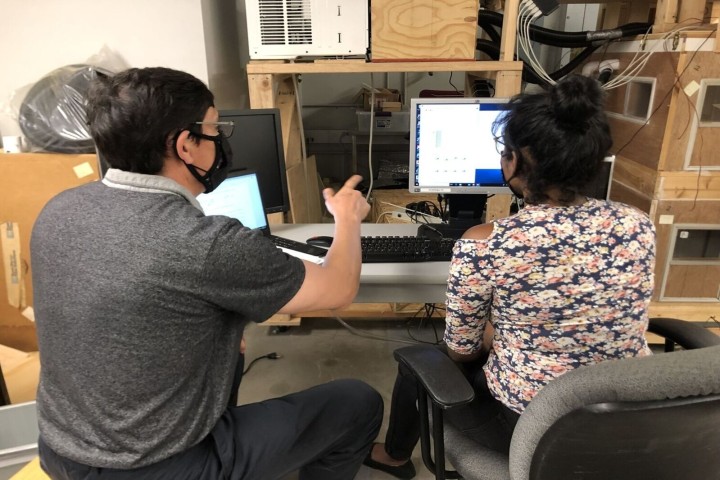
Thermal and Fluid Systems Laboratory
The Thermo-fluids Laboratory conducts fundamental and applied research in fluid and thermal sciences, dynamical systems, optimization, soft computing, electronic cooling, and thermal control, addressing energy efficiency and sustainable energy challenges. The lab combines analytical, numerical, and experimental approaches to develop technologies for more efficient energy-conversion devices and reduced environmental impact.
The lab has two sub-facilities:
(i) Computational workspace: Student office with high-end HP Z620 workstations, a 14-node Beowulf Linux cluster, and software including Matlab, COMSOL Multiphysics, Tecplot, and in-house F77 codes for CFD calculations.
(ii) Experimental space: Equipment includes a natural convection loop, flow visualization with particle image velocimetry, a heat exchanger test facility, and a fully instrumented sub-scale building test facility, all interfaced with PCs for analysis and control.
Current research interests include:
- Simulation and control of thermal systems
- Soft computing techniques
- System and process optimization
- Heat and fluid flow analysis
- Nonlinear dynamical systems
- Analytical and numerical methods for PDEs
- Micro-scale fluid flow and heat transfer
- Electronic cooling, geophysical flows, and biologically inspired systems
The lab’s overarching goal is to develop sustainable urban solutions by minimizing energy consumption and environmental impact.
Lead Researcher: Prof. Arturo Pacheco-Vega
Lab location: E&T C 260
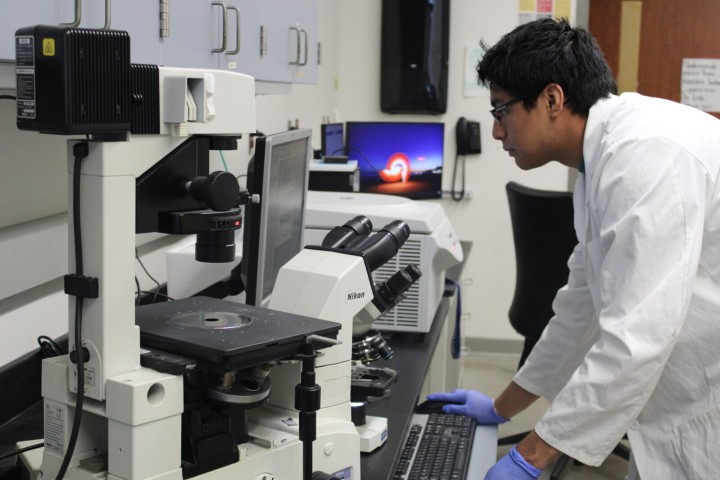
Nanoscale Imaging and Sensing Lab
The Nanoscale Imaging and Sensing Lab develop imaging and sensing tools for single-entity analysis. Current projects focus on:
- Single-cell analysis in Parkinson’s disease
- Fundamental studies and sensing applications of electrochemistry at nanoscopic interfaces
- Application of analytical techniques to study environmental concerns such as particulate matter (PM) and microplastic pollution
- Single nanoparticle electrochemistry
Lead Researcher: Prof. Yixian Wang
Lab location: RH 162
Nanoscale Imaging and Sensing Lab
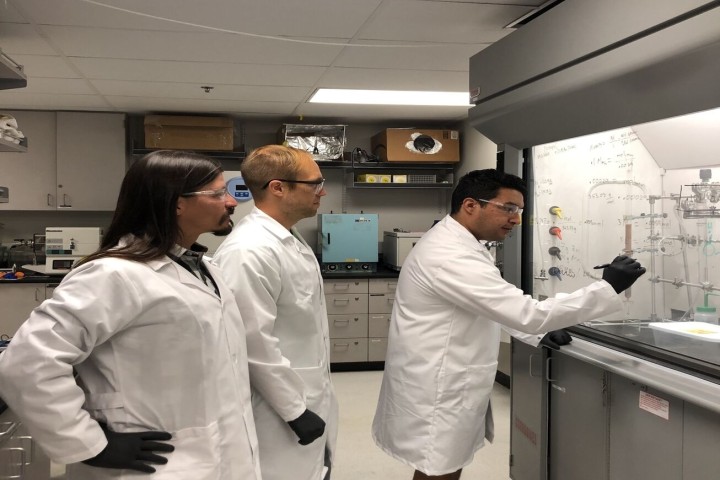
Sustainability Technology Lab
The Sustainable Technology Lab develops technologies that power modern life while minimizing environmental and social impact. Current research focuses on energy storage, vehicle design, additive manufacturing, and engineering education.
Lead Researcher: Prof. J. Christopher Bachman
Lab location: E&T C 160
Sustainable Technology Lab
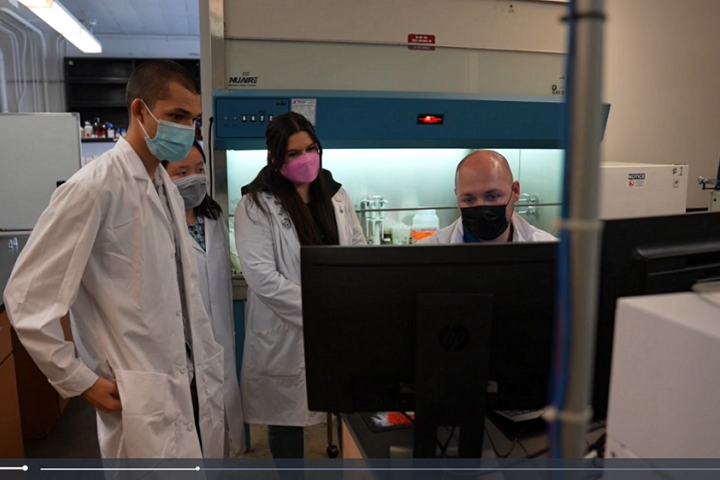
Complex Chemical Composition Analysis Lab
The Complex Chemical Composition Analysis Lab focuses on characterizing complex chemical mixtures using advanced techniques such as two-dimensional gas chromatography and high-resolution mass spectrometry. Our goal is to understand how chemical composition affects molecular properties and to advance the analysis of microplastics, an emerging field with significant environmental impact. Through this work, we aim to make a positive impact on society by contributing to the development of sustainable solutions.
Lead Researcher: Prof. Petr Vozka
Lab location: RH 146
C³AL Lab
